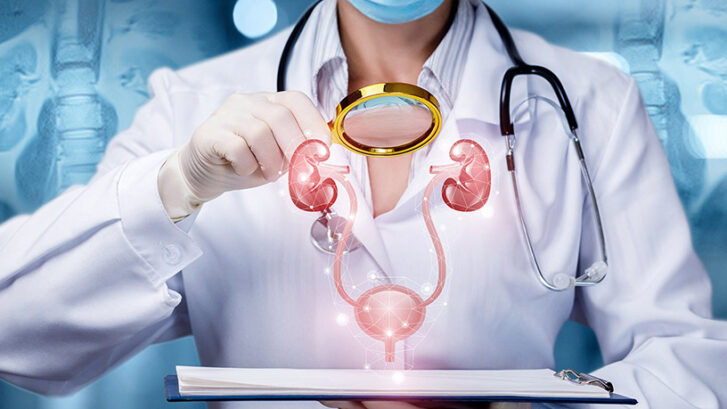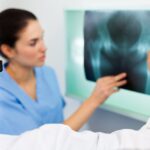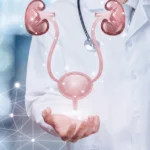Department Introduction
It is our pleasure to welcome you to Hassabo International Hospital Urology Department for your consultative and treatment consideration. We are committed to providing the highest quality patient care in a compassionate, safe and patient-focused manner. Rest assured that you have come to the right place for your medical condition. The information provided in this guide should answer most questions you may have regarding our Urology physicians, ancillary staff, and the services we offer. Should you have additional questions please don’t hesitate to contact the hospital.
Department Overview
What Is Urology?
Urology is the branch of medicine that cares for the diagnosis and treatment of disorders of the urinary tract or the urogenital system. The organs within the realm of urology are the kidneys, adrenal glands, bladder, prostate, testicles, epididymis, vas deferens, and penis. In addition, urology also includes the female urinary system.
What is a Urologist?
Urologists are surgeons who care for the urinary system in both men and women, and the genital and reproductive system in men.
What Does Our Department Offer
HIH Urology Department provides consultation, diagnosis and treatment for all malignant and benign urologic diseases and dysfunctions in men and women. Urologists treat patients from children to adults with a variety of medical conditions, including urinary tract infections, kidney stones, cancer, prostate enlargement, male infertility, erectile dysfunction (impotence), female sexual disorders, male and female incontinence, and malignant and benign urologic diseases. Specialized and consultative clinical
services are available in the following areas:
- Laparoscopic Surgery
- Bladder reconstruction
- Urinary stone management
- Urology oncology
- Urinary Incontinence Surgery
- Sexual Dysfunction
- Transurethral resection prostate (TURP)
- Surgery of urethral strictures
When should I see a Urologist?
Most people are referred to a Urologist by their primary doctor.
Know the Warning Signs for Kidney Disease
Certain symptoms suggest that you may need to see a urologist. If you have any of the symptoms below, contact the Department of at HIH to book an appointment or visit our Emergency Department.
Symptom Checklist:
- Blood in the urine
- Pain when you urinate
- Changes in urinary pattern
- Frequent need to urinate
- Inability to urinate
- Weak or hesitant urinary stream
- Incontinence (difficulty holding urine or leaking)
- Pain in the lower abdomen
- Flank pain
- Scrotal pain
- Penis pain
- Frequent urinary tract infections
- Male infertility
- Male impotence or erectile dysfunction
- Mass in testicle
- Priapism: Priapism is an erection that lasts longer 4 hours without sexual arousal.
You should also see a urologist if you have had any of the following:
- Diagnosis of disease in the urinary tract or male reproductive organs
- Kidney Cancer
- En;arged Prostate (BPH)
- Bladder Cancer
- Prostate Cancer
- Kidney Stones
- Interstitial Cystitis
After Hours Urgent Care

If you have any of the following urology conditions, have not recently been evaluated by a urologist, and have not been told by a physician that the problem can wait for evaluation, you should consider being seen immediately at an emergency room:
These symptoms include:
- Inability to pass any urine at all, often associated with pain and distension of the bladder
- Visible blood in the urine (with clots), which makes urination difficult
- Blood in the urine after trauma/injury
- The sudden onset of severe pain in the scrotum/ testicles, often associated with fever, nausea, swelling
- Severe back/flank pain, sometimes associated with blood in the urine, nausea, vomiting, fever.
Information About The Clinic
The renal team of doctors, nurses, and other members are available at the clinic to meet your needs and ensure you receive the best possible care. Additional referrals and appointments can also be made at the clinic.
At the clinic you will undergo routine assessments. The urologist will normally have notes from the referring doctor, but they will ask questions about the patient’s medical history and carry out a physical examination.
They may also order some tests.
Imaging tests, such as CT scans, MRI scans and ultrasound can help the doctor locate the problem.
A cystoscope is a long, thin probe with a camera on that can be used to see inside the urinary tract, and, sometimes, to take a sample of tissue for testing.
- A urine test can check for bacteria or other signs of disease.
- A biopsy can check for cancer and other disorders.
Urodynamic testing can check how fast the urine leaves the body, how much urine remains in the bladder after urinating, and how much pressure there is in the bladder.
Following diagnosis, the treatment will depend on the condition. Both medical management and surgery are options.
At the clinic a plan will be made in relation to your next visit, changes to medications or other aspects of your care.
When you schedule your appointment we will ask you to provide important information that will help us evaluate your current condition:
- Bring a complete list of your medications
- All records that refer in any way to your condition
- All prior medical records, including x-ray films, biopsy reports, lab and/or pathology records
- Any necessary referrals or prior authorization required by your insurance company
- Write down any questions or problems to discuss
Patients are generally seen by appointment, however if your situation is urgent, please inform our staff when you call or visit our 24/7 Emergency Department. Every effort will be made to see you as soon as possible.
Surgical procedures are performed in both in-patient and out-patient settings. Our Medical Clinic Ambulatory Surgery Center is located on the first floor of the medical office building in Nasr City, and is available for most of your outpatient needs including:
- Prostate biopsy
- Cystoscopy (bladder evaluation)
- Vasectomy
- ESWL (stone removal)
- Circumcision
If your particular needs require a hospital stay, your surgery will be coordinated through our office.
Our patients are provided with the services of our Surgical Coordinator who will meet with you and organize your entire pre-operative and post-operative surgical care. Your surgical coordinator is your liaison between you and your physician.
Services include:
- Scheduling surgery
- Providing educational materials
- Thorough review of the surgical process and care
- Coordinate pre-op and post-op clearances and appointments
- Assistance with insurance referrals and prior authorizations
Questions & Comments
If, after reading this leaflet, you still have questions, please do not hesitate to ask the specialists or nurses in our unit. They will be happy to give you more information or arrange a meeting with the Consultant / Medical Director.
We would appreciate it if you could let us know whether you are satisfied with our care. For this purpose a visitor’s book & patient satisfaction form is available in each of our departments. We would like you to write down your comments, experiences and/or suggestions for improvement, so that we can share this with our staff members. This input may help us to improve the service at the centre.
The Medical Director /patient & care provider service center can be reached on
01006625687 – 23520003 – 23521002 – 23520008 – 23521006 – 23521007 – 23520040
or via the e-mail address:






